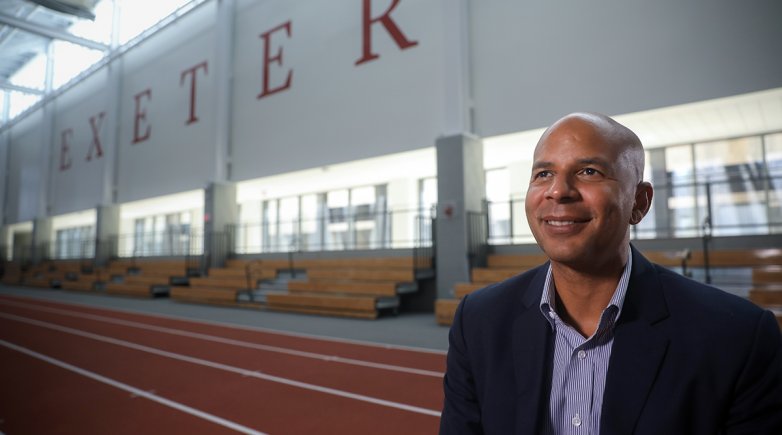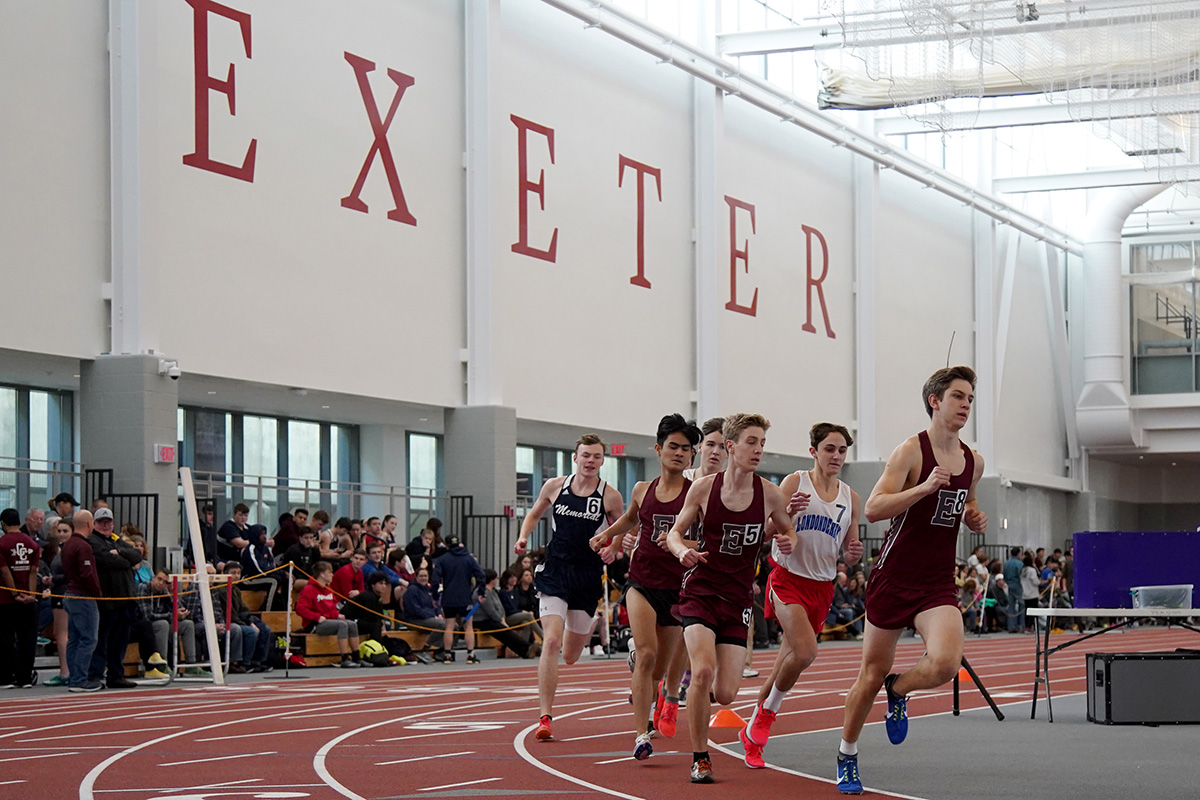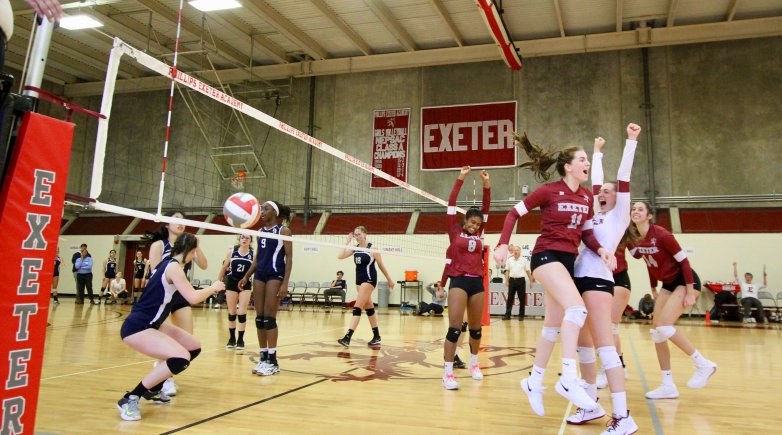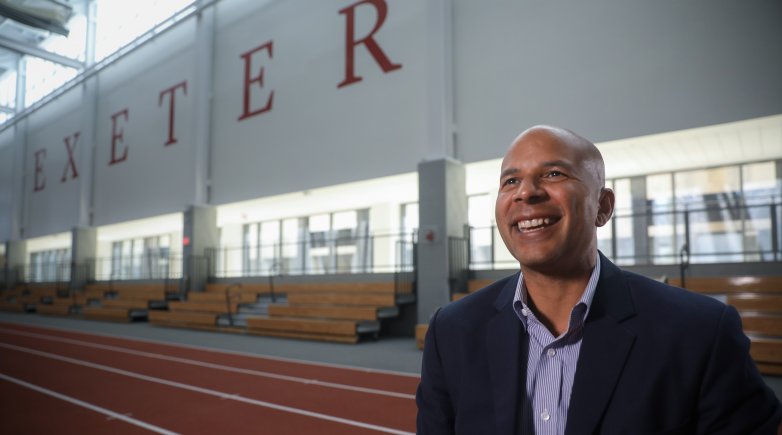Department of Physical Education and Athletics update
A lifelong student-athlete, Director of Physical Education and Athletics Jason Baseden earned a bachelor’s degree from St. John’s University while leading the track and field team as a two-time captain. He holds a master’s degreein athletic administration and was the director of athletics at The Peddie School, as well as the International School of Brussels. Prior to that, he was the head coach of basketball, track and field, and strength and conditioning at the American School of Paris. He was named Exeter’s director of physical education and athletics in 2020.
“Educational athletics” — the idea that sports teach young people values and skills that prepare them to lead purposeful lives — isn’t just a buzz phrase to Baseden, it’s the backbone of his vision for Exeter’s Department of Physical Education and Athletics. “Obviously we have world-class academics here, but I find that you can have the smartest people in the world, but if they don’t have grit, life skills and social skills to put that academic knowledge to use, then they fall short of their potential. We use sport as a vehicle to teach those skills.”
More than 800 students, nearly 70% of the student body, participate on an athletic team each year. That participation, Baseden says, offers opportunities for leadership, teamwork, decision making, perseverance, integrity, sacrifice and overcoming adversity. In an effort to provide more students with the transformative experience of competition, Baseden is looking to develop a “thirds” program, an alternative to club-level sport participation for those athletes who have a passion, but don’t make the junior varsity or varsity roster.




